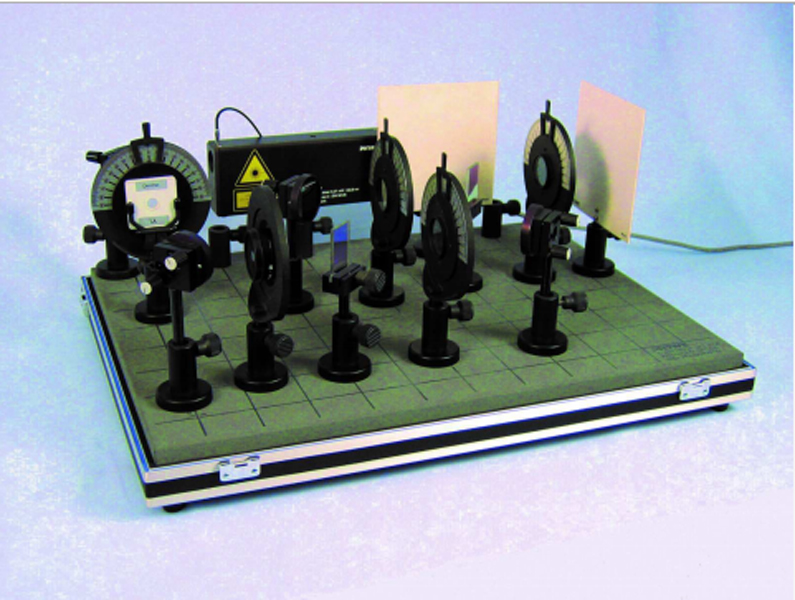Quantum eraser with the Mach-Zehnder interferometer

A Mach-Zehnder-interferometer is illuminated with a laser beam. Circular interference fringes appear on the screens behind the interferometer. If polarisation filters with opposite polarisation planes are placed in the two interferometer paths the interference patterns disappear. Placing another polariser before one of the screens causes the pattern to reappear. Electromagnetic radiation can be described both in terms of propagating waves, as well as particles (photons). The experiment illustrates this duality by showing how interference patterns can be explained on the basis of both classical wave mechanics and quantum physics.
- realise that part of the information a photon carries can be erased
- discuss the wave particle duality of photons by interpreting the experimental outcome from different points of view
- Mach-Zehnder setup allows to follow very clearly the different path of the photons
Lens, mounted, f +20 mm
Laser, He-Ne, 0.2/1.0 mW, 230 V AC
Polarization specimen, mica
Optical base plate in covering case
Magnetic foot for optical base plate
Adjusting support 35 x 35 mm
Surface mirror 30 x 30 mm
Holder for diaphragms and beam splitters
Lensholder for optical base plate
Diaphragm holder for optical base plate
Polarizing filter for optical base plate
Beam splitter 1/1, non polarizing
Screen, white, 150×150 mm
- Set up the experiment and observe the interference pattern on the screen.
- Change the polarisation of the beams with the PF1 and PF2 polarisers and observe the influence on the interference pattern.
- Use the third polariser PF3 to cancel the polarisation of the light in the two beams and observe the reappearance of the interference pattern.
- Wave-particle duality
- Wave interference
- Quantum mechanics
